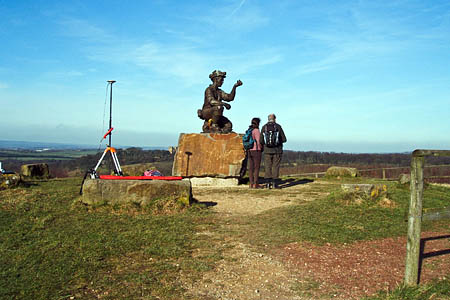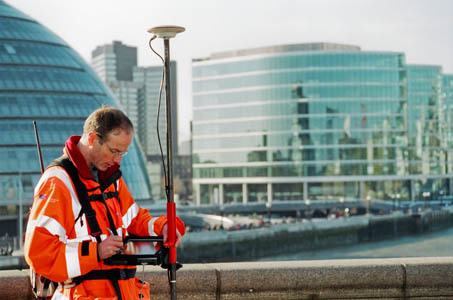
GPS units for walkers and outdoor enthusiasts could be affected by 4G signals
It has become essential to modern life and is responsible for European lorry drivers unexpectedly visiting English country lanes, and hapless motorists being ordered around by Victor Meldrew.
The sat-nav is now as ubiquitous in vehicles as a stereo player, but more importantly for outdoor enthusiasts, the Global Positioning System on which it relies can save the lives of lost walkers and guide rescuers to injured adventurers.
But GPS may be under threat from a new generation of mobile smartphones.
The fourth-generation, or 4G, mobile wireless service proposed in the USA would, according to Mark Greaves writing on the Ordnance Survey blog, interfere with the signals used by GPS receivers.
LightSquared, the company behind the proposed service, wants to mix satellite signals with ground-based radio transmitters. It is the latter that would, according to worried GPS users, blitz a large proportion of the sat nav signals, making GPS units either unreliable or, at worst unusable.
Global satellite navigation systems, of which the American-owned and run GPS is the best known, use weak signals from orbiting satellites 20,000 km (12,600 miles) above the earth.
The Russian Glonass and nascent European Galileo systems operate in similar ways.
But the 4G frequencies are close to those used by GPS and the other sat nav systems, and the worry is that LightSquared’s 40,000 ground-based stations’ radio waves would swamp these weak signals.
The UK Government plans to auction the 4G spectrum in Britain next year.

The amateur hill sleuths use professional GPS antennae and equipment to determine the highest point in Nottinghamshire
GPS receivers are used by a growing number of companies, individuals and Government bodies. Ordnance Survey workers now use highly accurate GPS devices to determine everything from the position of new buildings to the height of land, and the trio of amateur hill sleuths responsible for the demotion and promotion of a few mountains into hill lists, Graham Jackson, John Barnard and Myrddyn Phillips, use professional GPS gear to determine the heights of hills.
The ambulance rushing to an emergency and the delivery van bringing your supermarket groceries will both be guided by GPS receivers.
The explosion in sales of hand-held GPS units and digital mapping has transformed the way many walkers, mountain bikers and other outdoor enthusiasts navigate their way in the hills. Mountain rescue teams have even pinpointed lost walkers by getting them to read their position, in latitude and longitude, from a GPS-enabled smartphone.

Ordnance Survey staff use GPS signals to get accurate data in their surveys
Mark Greaves says LightSquared has offered a change to the proposed network which involves using different frequencies and lower power at the base stations which they say limits the interference. But the company argues that GPS receivers should be forced to update so that they filter ‘out of band’ signals such as LightSquared’s and also operate more closely in their allotted spectrum, a solution likely to cost current GPS users.
The company said: “Test results show this lower block of frequencies is largely free of interference issues with the exception of a limited number of high- precision GPS receivers that are specifically designed to rely on LightSquared’s spectrum.”
In the USA, a group called the Coalition to Save our GPS has been formed to protect what it says is a $96bn industry.
In Europe, the battle is yet to surface, but if an operator wanted to follow the same path as the Virginia-based 4G company, Victor Meldrew may be sending motorists the wrong way and paper maps might become very popular among outdoor enthusiasts once more.
Mountain rescuers will, of course, tell you that you should always carry a paper map and compass, along with the knowledge of how to use it, for just those moments when the electronics let you down. That could be even more important in the future.
Out in the Hills
06 September 2011just have to learn to use a map and compass then :-)
C Woodman
07 September 2011Why should GPS units be updated, this would cost the general population a huge sum of money, the new technology has to be made so that it doesn't interfere with existing equipment.
Marc Ashton
10 October 2011It might be interesting for everyone to note that this problem has arrised due to the manufactures of GPS equipment not following good design practises. Lightsquared are remaining within there assigned bandwidth, the problem has arrised by manufacturers not providing adequate filtering on GPS recievers in effect squatting on bandwidth. This opne letter from lightsquared will clarify.
http://www.talksatellite.com/Americas-A100438.htm
They have also shown how simply this problem can be corrected.
Margaret
12 December 2011Please remember the American Global Positioning System (GPS) is called NAVSTAR - not GPS.